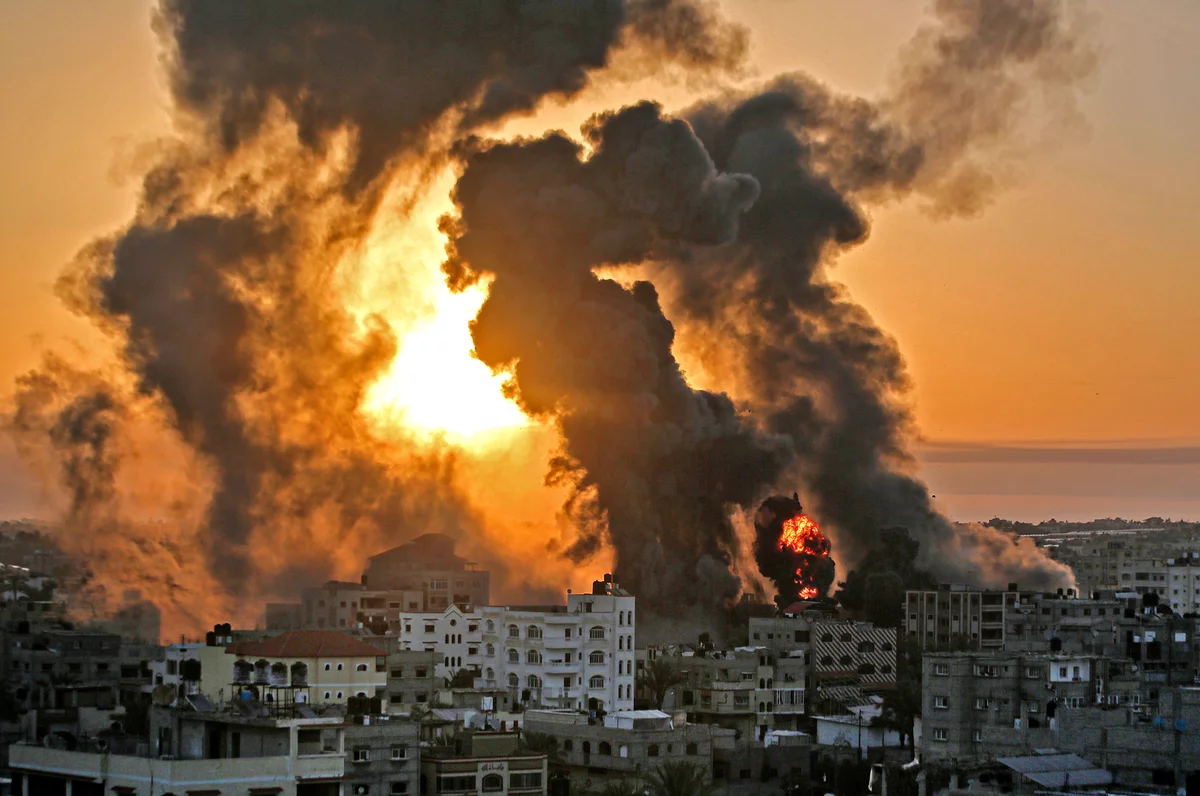On January 2nd, authorities announced that Israel will present its defense before the United Nations’ highest court against allegations of committing genocide in its conflict with Hamas.
In the face of global condemnation over Israel’s ongoing military actions in Gaza, South Africa took a significant step on December 29th by approaching the International Court of Justice (ICJ). To seek an immediate ruling asserting that Israel had violated its responsibilities under the 1948 Genocide Convention.
The Israeli Foreign Ministry expressed strong disapproval, stating, “Israel rejects with disgust the blood libel spread by South Africa.”
The lingering uncertainty arises from the fact that even if the ICJ issues “provisional measures” post the requested hearing by South Africa, Israel retains the option to disregard them. This echoes a similar situation in March 2022 when the court directed Russia to cease its military actions in Ukraine, an order that Russia has not complied with to date. Henceforth, this decision underscores government’s concerns about its standing in the international community.
Coupled with South Africa’s move that has intensified the critique directed at Israel from several non-Western entities.
The Convention and Role of ICJ
The court serves a dual purpose: firstly, to resolve legal disputes submitted by states in accordance with international law, and secondly, to provide advisory opinions on legal queries referred to it by duly authorized organs and agencies of the United Nations system.
While the term “genocide” has been employed broadly in international discourse, its precise definition is outlined in the United Nations Convention on the Prevention and Punishment of the Crime of Genocide, introduced in the General Assembly in 1948.
The Convention states: “Genocide means any of the following acts committed with intent to destroy, in whole or in part, a national, ethnical, racial or religious group, as such: (a) Killing members of the group; (b) Causing serious bodily or mental harm to members of the group; (c) Deliberately inflicting on the group conditions of life calculated to bring about its physical destruction in whole or in part; (d) Imposing measures intended to prevent births within the group; (e) Forcibly transferring children of the group to another group.”
The Convention further states: “Any contracting party may call upon the competent organs of the United Nations to take such action under the Charter of the United Nations as they consider appropriate for the prevention and suppression of acts of genocide.”
Furthermore, the Application alleges that, “acts and omissions by Israel… are genocidal in character, as they are committed with the requisite specific intent… to destroy Palestinians in Gaza as a part of the broader Palestinian national, racial and ethnic group.”
Further, it alleges that “the conduct of Israel – through its State organs, State agents, and other persons and entities acting on its instruction or under its direction, control or influence – in relation to Palestinians in Gaza, is in violation of its obligations under the Genocide Convention.”
Article IX of the Genocide Convention permits any state party to the convention to initiate a case against another before the ICJ, even if it does not have any direct connection with the question in conflict. Recently, the court affirmed this principle by allowing the Gambia to file a genocide claim against Myanmar. Furthermore, in a case involving Croatia and Serbia, the court determined that actions such as denying the population access to food, shelter, medical care, and other essential means of subsistence constitute acts of genocide.
Moreover, it’s not the first time that South Africa condemned atrocities inflicted on Palestinians. In October, as the violence began to escalate, the African National Congress commented on the “unfolding atrocities in the Middle East.” Subsequently, South Africa took a significant step by suspending diplomatic ties with Israel, despite Israel being the largest trading partner in the African continent and having the potential for a mutually beneficial relationship with the Jewish State. South Africa’s solidarity with Gaza is deeply rooted, reflecting a historical pattern seen in many nations that endured colonialism and occupation.
Traditionally sympathetic to the Palestinian cause, South Africa established diplomatic relations with Palestine shortly after the dismantling of its own Apartheid government in 1990.Discrimination and disempowerment are one of the primordial reasons which made it sensitive to what was happening to Palestinians dominated by the Israelis. Leaders like Nelson Mandela spoke up strongly for the rights of the Palestinians. Additionally, Israel was widely seen as a state propped up by the West’s support, and South Africa had not forgotten the West’s role in perpetuating apartheid.
Over the years, several African nations, South Africa included, have moderated their stance toward Israel. A pivotal factor in this shift has been the appeal of Israel’s prosperity and technological advancement, offering various benefits such as new technologies, particularly in agriculture, financial aid, and military training.

